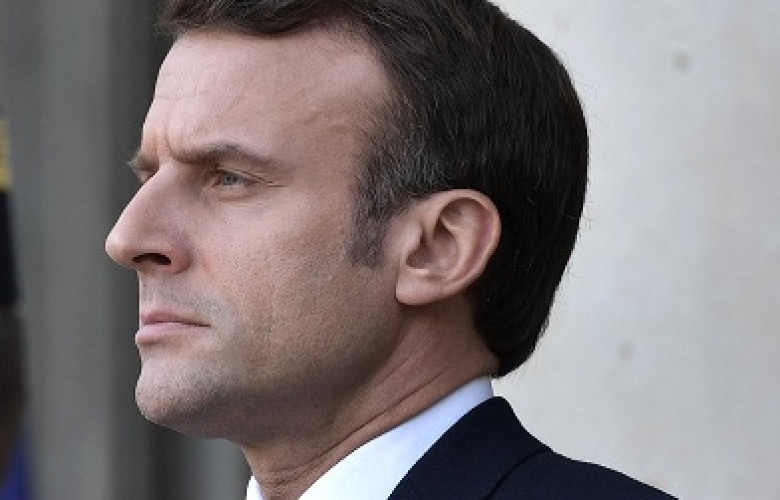France’s legislative elections and complications for New Caledonia
Denise Fisher, Visiting Fellow at ANU's Centre for European Studies
2024-06-12
EUROPE
GEOPOLITICS
This article first appeared on The Interpreter, published by the Lowy Institute

French President Emmanuel Macron made a surprise decision at the weekend to dissolve France’s national assembly and set new elections for 30 June and 7 July. While Macron’s move followed a defeat in European parliamentary elections, France’s political calendar will have a profound impact on its faraway Pacific territory and Australia’s closest eastern neighbour, New Caledonia.
New Caledonia has entered a fifth week of disarray. Macron himself made a flying visit after unrest boiled over into violence last month. Despite despatching 3,700 French security personnel, and exhortations by local leaders to return to peace, disruption continues. Blockades on key roads are maintained both by Kanak independence supporters, and loyalists protecting their property.
The tension had built over Macron’s introduction of constitutional change to broaden voter eligibility in New Caledonia, diluting the indigenous Kanak vote. But the violence that erupted on 13 May was underpinned by far deeper differences over independence and indigenous recognition.
Sporadic incidents continue, such as burning of property and interchanges with police. France has extended night curfews till 17 June, and declared the airport closed indefinitely, albeit allowing local company Aircalin to fly to select destinations, including Brisbane. Air New Zealand has suspended services there until September.
With the National Assembly dissolved, the final step in Macron’s controversial constitutional reform, a joint meeting of the houses of parliament, is not possible, and the current process lapses. But the stand-off will continue.
Even before Macron’s announcement, position statements by key leaders suggested they were unlikely to discuss a new future imminently. While on 6 June, 94 loyalist personalities made a joint appeal for constructive dialogue, the same day, their leaders demonstrated at the local Courts, urging judicial action against instigators of the riots, suggesting the courts were soft on independence supporters. The Chief Prosecutor publicly defended the integrity of the courts and its record bringing miscreants to justice.
The main independence coalition will meet on 16 June to develop a joint position. Meanwhile, on 8 June the pro-independence President of the local government, Louis Mapou, in a lengthy discourse allocated blame to both independence and loyalist leaders for the degeneration of the riots, insisted Macron clarify his intentions on constitutional reform, urged fair action by judicial and security personnel, and called on all leaders to engage in “deep discussion” about the future.
Immediately thereafter, Daniel Goa, leader of the hardline Union Calédonienne, issued a blistering statement in which he said Kanaky-New-Caledonia should declare sovereignty on 24 September 2024, the anniversary of France’s taking possession in 1853, with a five-year transition period to 2029. He said a comprehensive agreement could only occur by retaining all 1998 Noumea Accord benefits, ensuring revenue from the nickel resource accrued solely to New Caledonia, and economic, employment and training measures.
The loyalist response was immediate, the two principal parties roundly rejecting independence. On 9 June, a public letter signed by 38 lawyers claimed the controversial third referendum (boycotted by Kanak independence supporters in 2021) was justified, defended loyalists’ barricades as opposed to those of independence supporters, and queried the latter’s demands shifting from withdrawal of legislation to full sovereignty.
All this in the lead-up to Macron’s dissolution of the national assembly.
The local reaction to Marcon’s decision was swift. A leader of the independence party Palika described the move as hardly conducive to a return to calm. Even a loyalist, moderate national MP Dunoyer, said it was “almost indecent” to impose an election campaign on New Caledonians when it was not their priority. Other loyalists were concerned at the lapsing of the voter eligibility legislation they supported.
As all parties now focus on selecting national candidates by 16 June, there is only hope, however vain, that this may provide space for calm reassessment of positions.
Meanwhile regional attention is engaged. Local government president Mapou said he had approached Australia, along with New Zealand, Japan, Vanuatu, Indonesia, the Pacific Community and the European Union for reconstruction assistance. There have been expressions of concern by Pacific Island Forum leaders at France’s unilateral imposition of voter eligibility changes, recalling France’s “unfortunate” insistence on holding the third independence referendum in 2021 despite a Kanak boycott, and offering PIF assistance. On 5 June, in a joint statement, Pacific elders and civil society leaders urged Macron to listen to the indigenous people, withdraw the controversial legislation, reconsider armed deployments, and cease “externally designed pathways” to determine the political future. They proposed an Eminent Persons Group to foster conditions for early dialogue.
The French media has paid scant attention to regional appeals, instead focusing on Kanak leaders’ successful invocation of support from Azerbaijan, a government hostile to France and to Macron, mainly because of their opposition to its policies on Armenia.
For its part, Australia, while continuing to be watchful, is likely to adopt a wait and see approach until after the impending French elections.
Membership
NZIIA membership is open to anyone interested in understanding the importance of global affairs to the political and economic well-being of New Zealand.